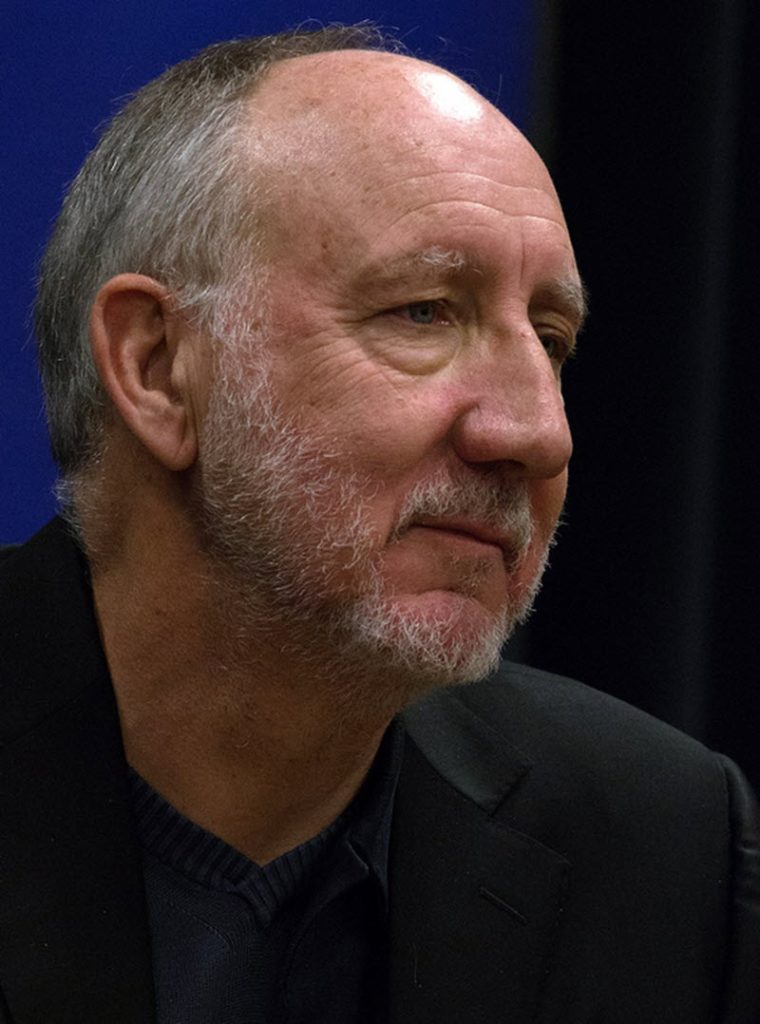Pete Townshend
Pete Townshend, one of the driving forces behind British rock band The Who, is a legendary figure in the world of music. Known for his sonic and lyrical genius, Townshend’s unique guitar style and introspective songwriting have influenced and electrified generations of music lovers.

Townshend’s contribution to both The Who and the broader music industry has been both strong and far-reaching. With over half a century of music to his name, his powerful lyrics, innovative guitar work, and passion for storytelling through song remain his legacy. There’s no doubt about it, when we talk about Pete Townshend, we’re talking about rock and roll history itself.
Townshend’s influence spans far beyond his work with The Who or his solo career. His pioneering contribution to conceptual narratives in rock and his innovative usage of technology for amplifying sound have left indelible marks in the music industry. His innovative style and substance continue to inspire upcoming musicians even today. Eddie Van Halen, Joe Walsh, and Slash are just a few who credit Townshend’s techniques as a significant influence on their music.
Short facts about Pete Townshend
- Pete Townshend is the co-founder, guitarist, second lead vocalist and principal songwriter of the Who.
- Townshend wrote over one hundred songs for 12 of the Who´s studio albums, including the rock operas Tommy (1969) and Quadrophenia (1973). He has also written an additional 100+ songs for his solo albums, and his creative output also includes television theme songs and radio jingles.
- He is renowned for his combination of aggressive playing style and poetic lyrics.
- In addition to being a famous guitarrist, he also plays bass guitar, ukulele, mandolin, banjo, violine, accordion, harmonica, drums, and keyboard.
Early Life and Early Musical Career
Peter Dennis Blandford Townshend was born in Chiswick, London on May 19, 1945. He tasted music very early in life due to his parents’ involvement in the entertainment industry. His father, Cliff Townshend, was a professional alto saxophonist, and his mother, Betty, was a singer.
Townshend parents had a volatile marriage marred by heavy drinking and infidelity. They split up for two years while Townshend was still just a toddler, and he was sent to live with his maternal grandmother Emma Dennis, whom Peter would later describe as “clinically insane”.
After a reconsiliacion, Cliff and Betty bought a house in a middle-class neighbourhood in west London and their son moved back to live with them.
The 1956 film Rock Around the Clock helped the young Townshend develop a fascination for U.S. rock ´n roll, and the first concert he attended was a Bill Haley performance in London. 1956 was also the year when his grandmother Emma gave him his first guitar; an inexpensive Spanish model. His father showed him a couple of chords, and Townshend learned the rest on his own from there.
Together with his friend John Entwistle, Townshend formed the trad jazz group the Confederates, with Entwistle on horns and Townshend playing the banjo. After getting into an altercation with Chris Sherwin, the drummer of the group, Townshend left the Confederates, and also bought himself a new, better guitar.
Townshend’s career took off in earnest in the early 1960s when he teamed up with classmates from Acton County Grammar School to form The Who. During their initial years, The Who did not just stir up the British music scene, but also redefined it. Their rebellious energy, radical arrangements, and memorable performances caught the public eye, with Townshend at the forefront as the primary songwriter.
Musical Style and Influence
Townshend’s guitar-playing techniques, including the ‘windmill’ style and ‘power chords,’ became iconic, and his penchant for smashing guitars on stage became legendary. With The Who, his experimentation included incorporating feedback, distortion and synthesizers into their music, breaking new ground in the rock genre.
Townshend’s songwriting capacity and lyrical prowess have always been the soul of the band’s music. He has penned numerous hits like “I Can See For Miles,” “Baba O’ Riley,” and “My Generation,” which resonate with fans even today. His rock operas ‘Tommy’ and ‘Quadrophenia’ are hailed as groundbreaking milestones, demonstrating his ability to narrate complicated stories through music.
The Solo Journey
Parallel to his work with The Who, Townshend carved out a successful solo career. His debut solo album, ‘Who Came First’ in 1972, was a critical success and showcased a more introspective side to his music. Perhaps the pinnacle of his solo work is the brilliantly crafted ‘Empty Glass’ (1980), marked by the haunting hit single “Let My Love Open the Door.”